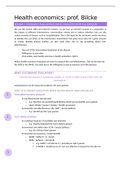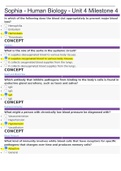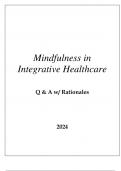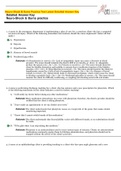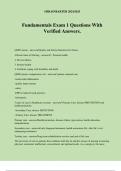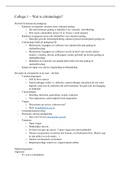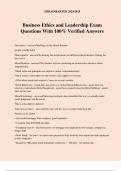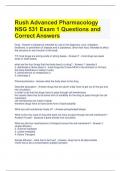Samenvatting
Summary Partim Bilcke: Health economics and mathematical models of infectious diseases
- Vak
- Instelling
Summary of the part of the course Health economics and mathematical models of infectious diseases given by professor Bilcke. Including solutions to the exercise on the flu intervention. Includes all class notes.
[Meer zien]
